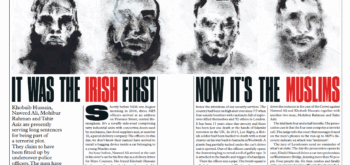The likelihood that a prisoner being held on remand is from a Black or minority ethnic background has increased by 17% over six years. According to Ministry of Justice figures obtained under freedom of information legislation by Liberty Investigates, the proportion of Black and minority ethnic people in the total remand population was 34% at the end of September 2021 compared to 29% six years earlier.
Individuals from an ethnic minority make up about 13 percent of the UK’s population. ‘The figures mean that the likelihood that any given prisoner held on remand is from a Black or minority ethnic background had increased by 17% from the end of September 2015 to the same point in 2021,’ according to the report written by Mirren Gidda and Eleanor Rose of Liberty Investigates editor and the Guardian’s Rajeev Syal.
At the end of September 2019, 9,602 people were in prison on remand, while a year later this had risen to 12,274, and at the end of September 2021 the figure stood at 12,990. ‘Of these, 2,923 of the September 2019 figure were from Black and minority ethnic backgrounds compared with 3,897 in September 2020, and 4,286 at the end of 2021 – an increase of 1,363 people across the three years.’
‘With the pressures of Covid backlogs and cuts to legal aid, there is less scope to ‘correct’ for these biases and thus a higher chance of them operating in remand decisions,’ said Tyrone Steele, a criminal justice lawyer at the legal charity JUSTICE. ‘Policies which have serious racialised impacts, such as the Gangs Violence Matrix (the Metropolitan Police’s database of suspected gang members) and expansion of stop and search powers under Section 60, were created to ‘crack down’ on serious crime. Given 88% of [names on the Matrix database] are non-white, and that Black young men in London are 19 times more likely than their white counterparts to be stopped and searched, it is evident that this ‘crack down’ disproportionately targets racialised communities.’
Steele said: ‘It is disappointing that ever-greater numbers of ethnic minorities, and especially Black men, are spending increasing amounts of time on remand – straining the concept of innocent until proven guilty … We urge the Government to be upfront about the problem, publish the data, and commit to reversing this unacceptable trend.’







